Related Research Articles

The Little Foxes is a 1939 play by Lillian Hellman, considered a classic of 20th century drama. Its title comes from Chapter 2, Verse 15, of the Song of Solomon in the King James version of the Bible, which reads, "Take us the foxes, the little foxes, that spoil the vines: for our vines have tender grapes." Set in a small town in Alabama in 1900, it focuses on the struggle for control of a family business. Tallulah Bankhead starred in the original production as Regina Hubbard Giddens.
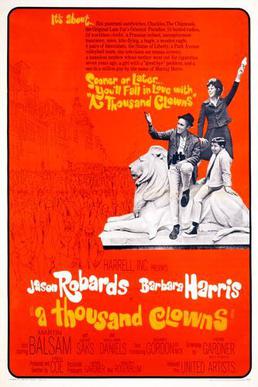
A Thousand Clowns is a 1965 American comedy-drama film directed by Fred Coe and starring Jason Robards, Barbara Harris, Martin Balsam, and Barry Gordon. An adaptation of a 1962 play by Herb Gardner, it tells the story of an eccentric comedy writer who is forced to conform to society to retain legal custody of his nephew.
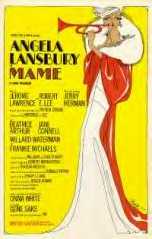
Mame is a musical with a book by Jerome Lawrence and Robert Edwin Lee and music and lyrics by Jerry Herman. Originally titled My Best Girl, it is based on the 1955 novel Auntie Mame by Patrick Dennis and the 1956 Broadway play of the same name by Lawrence and Lee. A period piece set in New York City and spanning the Great Depression and World War II, it focuses on eccentric bohemian Mame Dennis, whose famous motto is "Life is a banquet and most poor sons of bitches are starving to death." Her fabulous life with her wealthy friends is interrupted when the young son of her late brother arrives to live with her. They cope with the Depression in a series of adventures.

Gertrude Lawrence was an English actress, singer, dancer and musical comedy performer known for her stage appearances in the West End of London and on Broadway in New York.
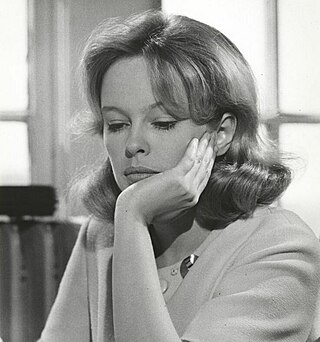
Sandra Dale Dennis was an American actress. She made her film debut in the drama Splendor in the Grass (1961). For her performance in the comedy-drama film Who's Afraid of Virginia Woolf? (1966), she received the Academy Award for Best Supporting Actress.
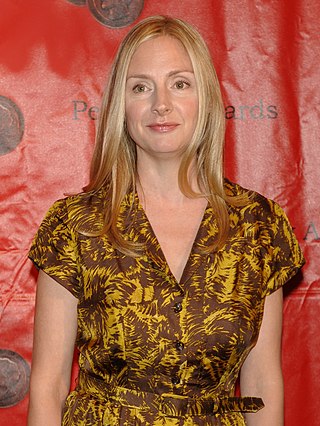
Hope Davis is an American actress. She is known for her performances on stage and screen earning various awards including nominations for a Tony Award, three Primetime Emmy Awards, and two Golden Globe Awards.

Daphne Rubin-Vega is an American actress, dancer, and singer-songwriter. She is best known for originating the roles of Mimi Marquez in the 1996 premiere of the Broadway musical Rent and Lucy in the 2007 premiere of the Off-Broadway play Jack Goes Boating.

A Day in the Death of Joe Egg is a 1967 play by the English playwright Peter Nichols, first staged at the Citizens Theatre in Glasgow, Scotland, before transferring to the Comedy Theatre in London's West End.
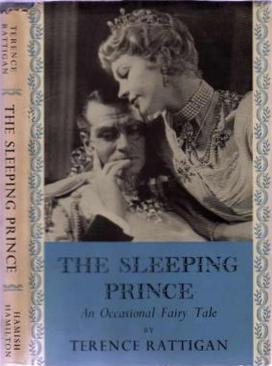
The Sleeping Prince: An Occasional Fairy Tale is a 1953 play by Terence Rattigan, conceived to coincide with the coronation of Elizabeth II in the same year. Set in London in 1911, it tells the story of Mary Morgan, a young actress, who meets and ultimately captivates Prince Charles of Carpathia, considered to be inspired by Carol II of Romania.
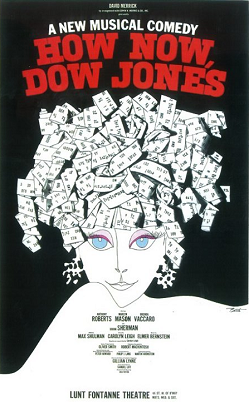
How Now, Dow Jones is a musical comedy by Academy Award winner Elmer Bernstein, Tony Award nominee Carolyn Leigh and Max Shulman. The original Broadway production opened in December 1967. A critically acclaimed revised version premiered off-Broadway in August 2009.

Marian Hall Seldes was an American actress. A five-time Tony Award nominee, she won the Tony Award for Best Featured Actress in a Play for A Delicate Balance in 1967, and received subsequent nominations for Father's Day (1971), Deathtrap (1978–82), Ring Round the Moon (1999), and Dinner at Eight (2002). She also won a Drama Desk Award for Father's Day.

Laura Ann Osnes is an American actress and singer known for her work on the Broadway stage. She has played starring roles in Grease as Sandy, South Pacific as Nellie Forbush, Anything Goes as Hope Harcourt, and Bonnie and Clyde as Bonnie Parker, for which she received a Tony Award nomination for Best Actress in a Musical. She also starred in the title role of Rodgers & Hammerstein's Cinderella on Broadway, for which she received a Drama Desk Award and her second Tony Award nomination for Best Actress in a Musical.
Johnny No-Trump is a 1967 play written by Mary Mercier which ran for one performance on Broadway.
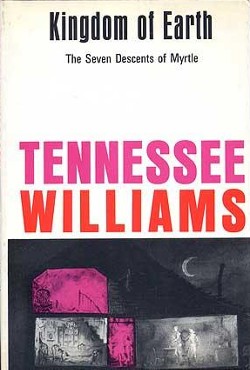
The Seven Descents of Myrtle is a play in seven scenes by Tennessee Williams. It started as a short story, The Kingdom of Earth, which Williams began in 1942 while in Macon, Georgia, but did not publish until 1954, in the limited edition of his story collection Hard Candy. Williams subsequently adapted the story into a one-act play, "Kingdom of Earth," published in the February 1, 1967, edition of Esquire magazine. He then expanded that play into a full-length seven-scene version, premiered the following year in New York with the title The Seven Descents of Myrtle and published on October 31, 1968, by New Directions as Kingdom of Earth. Its title character is reminiscent of another Williams' heroine, Blanche Dubois in A Streetcar Named Desire.

Rock of Ages is a jukebox musical built around classic rock songs from the 1980s, especially from the famous glam metal bands of that decade. The musical features songs from Styx, Journey, Bon Jovi, Pat Benatar, Twisted Sister, Steve Perry, Poison and Europe, among other well-known rock bands. It was written by Chris D'Arienzo, directed by Kristin Hanggi and choreographed by Kelly Devine with music supervision, arrangements and orchestrations by Ethan Popp.

The Season: A Candid Look at Broadway is an account of the 1967–1968 season on and off-Broadway by American novelist and screenwriter William Goldman. It originally was published in 1969 and is considered one of the better books ever written on American theater. In The New York Times, Christopher Lehmann-Haupt called the book “Very nearly perfect...It is a loose-limbed, gossipy, insider, savvy, nuts-and-bolts report on the annual search for the winning numbers that is now big-time American commercial theatre.”
The Ninety Day Mistress is a 1967 sex comedy play. The original production starred Walter Abel, Martin Milner and Dyan Cannon and ran for 24 performances.
Something Different is a 1967 comedy play by Carl Reiner. Reiner directed the original production which starred Bob Dishy.
Spofford is a 1967 play based on the novel Reuben, Reuben by Peter DeVries. Melvyn Douglas appeared in the original Broadway run. The play was written and directed by Herman Shumlin. It was the one play written by Shumlin, who was known for his work as a producer and director.
Any Wednesday is a 1964 American stage play by Muriel Resnik. It ran for 983 performances from 1964 to 1966, making it one of the most successful comedies on Broadway in the 1960s, and was turned into a feature film of the same name in 1966.